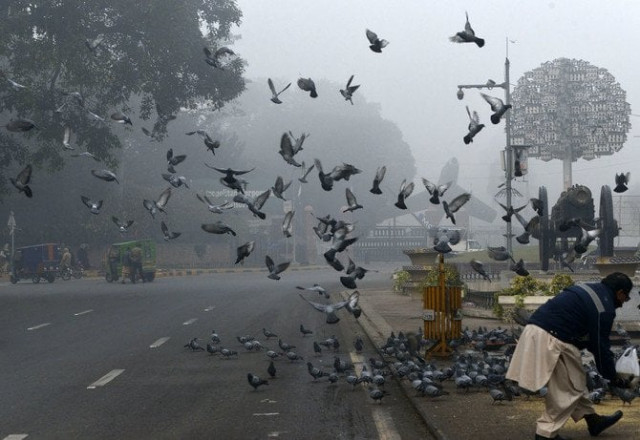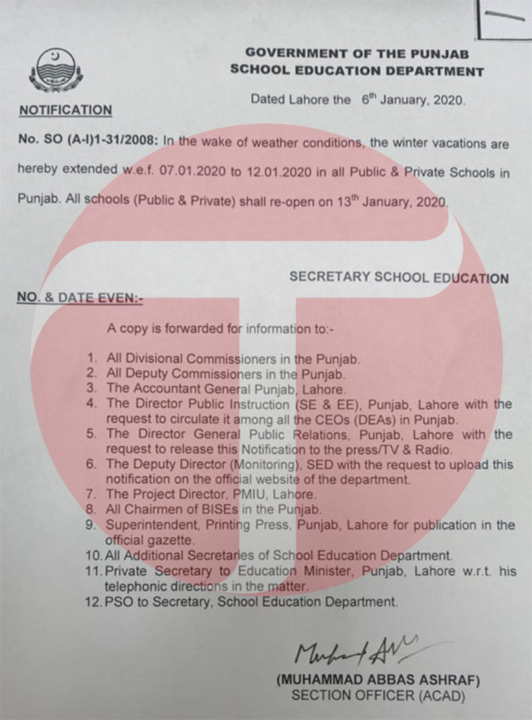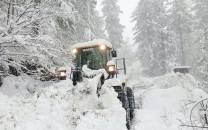Winter vacations extended for schools in Punjab
Rain, snowfall expected in Punjab and other parts of Pakistan

A Pakistani man feeds pigeon on the roadside amid heavy fog and smog conditions in Lahore on January 3, 2019. PHOTO: AFP
The extension was notified by the Punjab School Education Department on Monday. "The schools will remain closed from January 7 to 12 and will reopen on January 13."
The move comes amid predictions of widespread rain and snowfall in Punjab, Islamabad, Khyber Pakhtunkhwa, Azad Jammu and Kashmir, Gilgit Baltistan, Balochistan and isolated places in upper Sindh.
A strong westerly wave is hitting the upper and central parts of the country and is likely to persist till Wednesday.

Climate change: the winter snap
In the last 50 years, the annual mean temperature in Pakistan has increased by roughly 0.5°C. The number of heatwave days per year has increased nearly fivefold in the last 30 years. Annual precipitation has historically shown high variability but has slightly increased in the last 50 years.
Sea level along the Karachi coast has risen approximately 10 centimetres in the last century. By the end of this century, the annual mean temperature in Pakistan is expected to rise by 3°C to 5°C for a central global emissions scenario, while higher global emissions may yield rise of 4°C to 6°C.
Average annual rainfall is not expected to have a significant long-term trend but is expected to exhibit large inter-annual variability. Sea level is expected to rise by a further 60 centimetres by the end of the century and will most likely affect the low-lying coastal areas south of Karachi toward Keti Bander and the Indus River delta.
Under future climate change scenarios, Pakistan is expected to experience increased variability of river flows due to increased variability of precipitation and the melting of glaciers.



















COMMENTS
Comments are moderated and generally will be posted if they are on-topic and not abusive.
For more information, please see our Comments FAQ